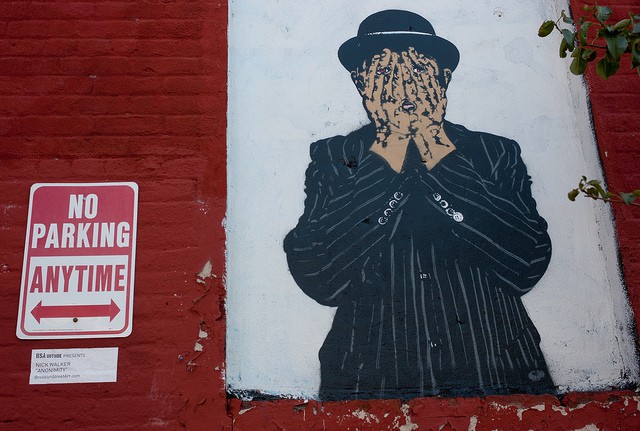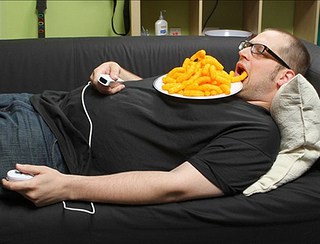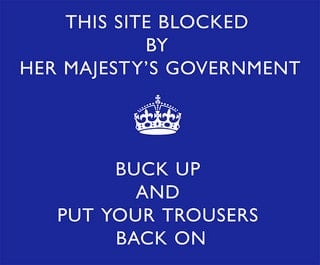Here’s a fact I am not proud of – I behave differently when I wear my Roman collar. That’s right. I am often a bit nicer. I am a less aggressive driver. I actually eat healthier, too. I wish it were not the case. I wish I was at my best all the time, but there is just something about knowing that people are watching me – and expecting more from me (and wanting to prove them right) or expecting less from me (and wanting to prove them wrong) – that makes me behave differently.
And I’m not alone. When e-readers first became popular, it was a boon to the romance novel industry. Why? Because women are more likely to read them when other people can’t see the cover. This isn’t a new idea. The way being observed makes you into a ‘better’ person has been studied for years. For example, people are more likely to clean up after themselves in a cafeteria if there is even a poster of human eyes watching them. And whether the Church admits it, I suspect that’s why we pass the collection basket with everyone watching rather than a very sensible collection as people walk in or walk out (because honestly, why would we pass it right after some of those homilies!).
Given all of this, it should come as no surprise that the internet has significantly changed our behavior. We need look no further than the comments section of YouTube to understand the way anonymity embiggens idiocy. The power of privacy afforded by the internet is also why, when everyone else was standing outside Buckingham Palace waiting for the arrival of Prince George, the Prime Minister of the UK, David Cameron, was talking about pornography.
Cameron is suggesting internet service providers deploy an opt-out system for viewing pornography over the internet. This basically means that everyone will automatically have pornographic websites blocked unless the user explicitly tells the provider, ‘no, I would like the option of viewing pornography.’ Otherwise, the filter will go into effect for their network. This is a much more aggressive move than the current opt-in programs, where an individual can place filters on the network if he or she wants.
In the field of public health, moving from an opt-in to an opt-out program is what we do when a disease has an increasingly detrimental effect on the public’s health. During the rise of concern over HIV, many suggested that rather than having people voluntarily opt-in to be tested for the disease, that we do so automatically and only skip the test if a patient opted-out. It might seem a bit paternalistic, but it is ‘soft paternalism’ which doesn’t eliminate someone’s options. It just nudges them in the direction that society wants them to go. Actually, it’s all the rage these days.
Pornography might not be an appropriate topic for polite conversation, but it would be hard to claim that it isn’t a significant part of people’s lives. After all, the average young man spends two hours a week watching it1. Aside from being generally out-of-bounds as a conversation topic, I am keenly aware that the Church has a difficult time convincing anyone of its credibility on this topic. Public faces of the institution of the Church often preach sexual purity to others while behaving in a way that is anything but. Hypocrisy doesn’t look good on anyone. So take note that this article is not a debate why pornography is bad for you or whether morality should be legislated. Interesting topics in their own right, but what I am interested in is why Cameron’s proposal might actually reduce the use of pornography.
It is obvious why this opt-out system might reduce viewing among minors who don’t have control over the filter. That is an example of hard paternalism – eliminating someone’s choice altogether. But could this also reduce porn’s usage among competent adults who could unblock it with the click of a mouse? Could it really be that having to admit to another person your desire to unblock the filter will deter some people from having it unblocked? The simple answer is ‘yes’. The interesting follow-up is ‘why?’
I can think of a couple different reasons. For some it may be because they are too lazy to remove the filter. That’s right, some people might be too lazy to access pornography (which has to set some kind of record low for laziness). For others, their decision not to unblock might be rooted in embarrassment or fear. They might think a list could be made public or friends could search their browser history. But for others, the filter might be an easy reminder, the support to live as they truly want to. It might be like that co-worker who counsels you against clicking ‘send’ on an e-mail when she can tell that you are angry.
***
You may have heard of ‘structures of sin.’ These are social institutions that orient us as individuals to commit sin. When we live among them, sin becomes the easy or default option. Doing good becomes more complicated, less inviting. For example, college athletics are not a structural sin per se, but many colleges are very dependent upon athletic revenue for their operating budgets. Therefore, when a college athlete commits a crime, such as raping a fellow student, there are incentives for administrators to keep the crime hidden rather than to bring the athlete to justice. If universities were not so dependent on athletics for revenue – a structure that isn’t sinful itself but that orients it toward sin – the crime would more frequently be reported and justice would be achieved.
As a contrast to structures of sin, some scholars are now proposing that we think about structures of virtue. This flips the script. These structures orient us toward the good, making virtue the easier way to behave. For example, where banks are local and the banker and the homeowner actually see each in the grocery store or post office, there is less likelihood of predatory lending by the banker or the homeowner over-extending himself. Hailing from a town of 4,000 people I might be biased, but I think the accountability of small towns is a structure of virtue.
This doesn’t mean that some college administrators don’t report athletes accused of rape. And this doesn’t mean small-town bankers don’t engage in predatory lending. But it does mean that structures influence our behavior and they can orient either toward sin or toward virtue without us building the structure ourselves. A strong libertarian viewpoint might suggest that this kind of interference in decision-making is not completely necessary and therefore wrong-headed. The thing is, these structures of virtue do not take away personal responsibility or individual freedom; they merely recognize that our behavior is shaped by the world we live in. So why not point people in the direction we as a society would prefer them to go? We rightly laud those who feed the hungry. Perhaps incentives for grain silos and mobile farmer markets deserve our praise as well. Sometimes the Christian call to care for the neighbor is best done through personal interaction and sometimes it is only possible through anonymous structures created collectively.
***
The internet has intensified the private parts of our lives. It is a strange combination of being immediately connected and yet profoundly alone. Usually, we think that the internet has removed our privacy. True, I might not be by myself and am visible to exponentially more people than a person at any other point in history, but I have total control over what others know about me – they only see what I choose to let them see; only what I want them to see. Such a move removes any kind of benefit I get from being observed by others. Now, this isn’t all bad. People who are struggling with a family member dying of cancer can find an online support group in a matter of seconds, whereas they might not be ready to talk to anyone about it face to face. But on the other hand, addictions fueled by easy access on the web like gambling, pornography, or shopping can go completely unnoticed for a much longer time or never seen at all.
Cameron’s filter very well may be a stupid idea. I’m actually not all that interested in it as a policy proposal. But I am intrigued about what it tells me about myself. I could be disappointed that I need someone else around to behave better. Or I could say that it’s simply being motivated by shame – not a very admirable example of virtue ethics.2 But I actually think it’s a good and powerful thing that I am my best self when I am around others. So why wouldn’t I want to build structures that mimic that reality? If both the people around me and the social structures that scaffold my life nudge and encourage in the right direction, I am all for it.
After ten years as Jesuit, I am convinced I can’t live this life by myself. I am at my best when I am around others. I know I shouldn’t change who I am just because I am wearing my clerics. But my friends, my family, my colleagues, even the stranger on the sidewalk make me want to be a better man. I can only hope after I experience the fullness of life that their presence encourages, that I can be just as good when no one is looking.
Cover photo from Susan NYC at Flickr available here
— — —
- which our own Jeff Sullivan reflected on a while back. ↩
- You can take a look at a more thorough summary of virtue ethics here. ↩





